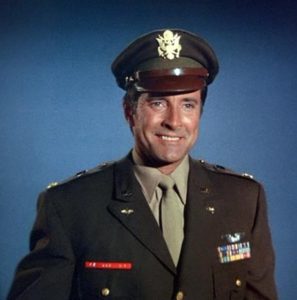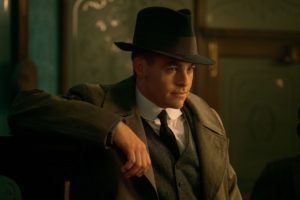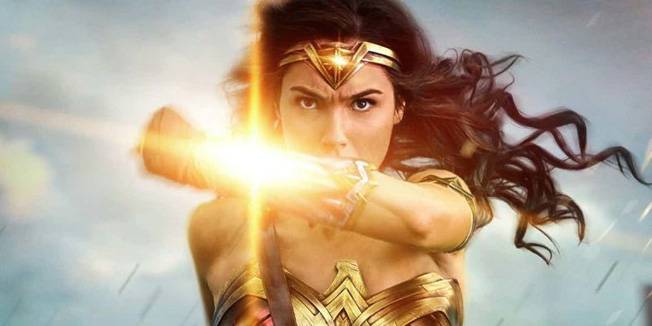 Last weekend, I — as many of my fellow nerds, geeks, and moviegoers also did around the world — made Wonder Woman a record-breaking film. Single-handedly, the Amazonian Princess of Themyscira pulled off a true wonder: an incredible cinematic experience from DC Studios. Guess it really does take a woman to do the job of two men.
Last weekend, I — as many of my fellow nerds, geeks, and moviegoers also did around the world — made Wonder Woman a record-breaking film. Single-handedly, the Amazonian Princess of Themyscira pulled off a true wonder: an incredible cinematic experience from DC Studios. Guess it really does take a woman to do the job of two men.
But I digress.
Let’s just address the 800-pound Doomsday in the room: Batman V. Superman (where Gal Gadot’s Diana was unveiled) was nothing short of a red hot mess. It made its money back, sure, but so did Star Wars: Episode One, Two, and Three, so please, don’t use that as a dog in this hunt. On account of BVS’ reception, a lot was riding on Wonder Woman. A lot. Perhaps the future of DC’s cinematic franchise.
I’ve had a week to process it and some things have cemented for me about this film:
- I want to see it again.
- This soundtrack is just epic.
- Justice League has quite the bar to clear now.
- There are some great lessons for writers in this film.
That last one might take you by surprise, but yes, there are valuable takeaways for writers in what director Patty Jenkins and screenwriter Allan Heinberg created. These were details that Batman V. Superman overlooked, contributed to Wonder Woman’s success, and offered to DC fans what they have craved since The Dark Knight: quality storytelling.
 Keep the story simple, even when it gets complicated. Diana’s story isn’t complicated. At first. She’s a little scrap of a girl that wants to grow up to be just like her Auntie Antiope, or as everyone else on Themyscira calls her, General Antiope. We see little Princess Di grow up to become a formidable warrior, but her world is rocked by the unexpected arrival of a German airplane flown by American spy Steve Trevor. A war is happening outside of her home so she take upon herself to fight for the good of Mankind. Pretty straight-forward, but the deeper we go into Diana’s story, layer upon layer of complexity is added. The core of Diana’s adventure, her evolution into Wonder Woman, remains clear throughout the film, but we are also introduced to sub-plots that, we discover, are all connected to her destiny.
Keep the story simple, even when it gets complicated. Diana’s story isn’t complicated. At first. She’s a little scrap of a girl that wants to grow up to be just like her Auntie Antiope, or as everyone else on Themyscira calls her, General Antiope. We see little Princess Di grow up to become a formidable warrior, but her world is rocked by the unexpected arrival of a German airplane flown by American spy Steve Trevor. A war is happening outside of her home so she take upon herself to fight for the good of Mankind. Pretty straight-forward, but the deeper we go into Diana’s story, layer upon layer of complexity is added. The core of Diana’s adventure, her evolution into Wonder Woman, remains clear throughout the film, but we are also introduced to sub-plots that, we discover, are all connected to her destiny.
In comparison, Batman V. Superman started with a decent enough idea. Bruce Wayne witnesses the destruction of Metropolis and holds Superman responsible for the deaths of his fellow men. You would think that would be enough, but then we are introduced to some sort of black market arms deal that ties back somehow to The Jok—sorry, Lex Luthor. Then we get into weaponizing kryptonite, permission to muck about with Zod’s corpse and the wreckage of a Kryptonian ship, and then we meet Diana. There’s a picture (yeah, that picture…) she wants back, even though it’s been digitized so it’s anyone’s guess how many copies are floating around the Interwebz. Wait, hold on, here’s a gratuitous montage of all the other members of the Justice League. Oh yeah, and Superman is appearing before Congress because REASONS…and MARTHA!!!!
You know, Batman Vs Superman is reminding me a lot of Season Two of True Detective…
Wonder Woman’s story is an easy one to follow, and each new element plays out to the final endgame. From the bedtime stories to her own perception of the outside world to Themyscira’s own history and mythology, this was economical storytelling that grew more nuanced the deeper you got in to the film.
 Give Your Characters Agency. I have been a fan of Wonder Woman for a long time; but one constant in the comic books and the television show: Steve Trevor. Even as a kid, I never bought that he was an ace pilot or spy. He was, without a doubt, the Himbo Alpha, stumbling from one bad situation to another, all with his perfect smile and great hair. “Oh, Diana,†he would say, flashing her his pearly whites before setting off to screw up her day, “this is not a job for you. Even Wonder Woman might find this a challenge.â€
Give Your Characters Agency. I have been a fan of Wonder Woman for a long time; but one constant in the comic books and the television show: Steve Trevor. Even as a kid, I never bought that he was an ace pilot or spy. He was, without a doubt, the Himbo Alpha, stumbling from one bad situation to another, all with his perfect smile and great hair. “Oh, Diana,†he would say, flashing her his pearly whites before setting off to screw up her day, “this is not a job for you. Even Wonder Woman might find this a challenge.â€
What a condescending fuck.
Chris Pine’s Steve Trevor, however, broke that convention. Pine’s approach was straight-forward, no-nonsense, and sincere. Quite a collection of traits for someone who is a spy. His story, his agency, was his mission: deliver obtained intel of a new mustard gas formula back to Allied Command. The best part about Chris Pine’s Trevor was that his mission did not include bumbling into harm’s way. You know, Lois Lane’s second job when not reporting for the Daily Planet? Even when she tries to help Superman in BvS, she nearly drowns…compelling Superman in the middle of a boss battle to drop everything and save her.
Thank, Lois. You’re a great helper.
Steve’s agency in Wonder Woman was captured beautifully with this line: “I’ll save the day. You save the world.†He knew his mission—the mission he never lost sight of—and knew what had to be done. He also knew that in handling Ares, Diana’s ability to multitask would take a serious hit. Thus, she needed someone that she trusted to cover a detail or two. That someone would be Steve Trevor.
That’s agency.
 It’s Okay to Go Dark. Just Don’t Wallow in It. Here’s the thing about Batman. When Bruce Wayne is Batman, Bruce gets his Hamlet on. He’s brooding. He’s dark. He’s tormented. Traumatized by the death of his parents. (Although not as much as moviegoers, as we are subject to it AGAIN AND AGAIN…) However, when Bruce is out in public as Bruce Wayne, he’s supposed to be a billionaire playboy. Christian Bale got that. Gets his “party boy†routine going in Batman Begins and The Dark Knight. Bale got super-broody in The Dark Knight Rises, though, and Ben Affleck kept that broodiness going in BvS. Unfortunately, times must be tough outside of Gotham as Lois seems stuck in ennui. Senator Finch has some kind of axe to grind with Superman. Clark manages a smile near the beginning of BvS, but quickly gets his own scowl of steel on once he dons his cape. As the (endless) film drones on, Superman outbroods Batman.
It’s Okay to Go Dark. Just Don’t Wallow in It. Here’s the thing about Batman. When Bruce Wayne is Batman, Bruce gets his Hamlet on. He’s brooding. He’s dark. He’s tormented. Traumatized by the death of his parents. (Although not as much as moviegoers, as we are subject to it AGAIN AND AGAIN…) However, when Bruce is out in public as Bruce Wayne, he’s supposed to be a billionaire playboy. Christian Bale got that. Gets his “party boy†routine going in Batman Begins and The Dark Knight. Bale got super-broody in The Dark Knight Rises, though, and Ben Affleck kept that broodiness going in BvS. Unfortunately, times must be tough outside of Gotham as Lois seems stuck in ennui. Senator Finch has some kind of axe to grind with Superman. Clark manages a smile near the beginning of BvS, but quickly gets his own scowl of steel on once he dons his cape. As the (endless) film drones on, Superman outbroods Batman.
Maybe that was what drove Batman to confront Superman. No one outbroods the Bat.
 In Wonder Woman, there is darkness, but it doesn’t smother you. It should, quite frankly, seeing as the movie is set in World War I, perhaps the darkest war in human history. Mustard gas. Trench warfare. Tanks. Weaponized airplanes. To top all this, the reason why the war was ongoing remained to many—especially to those who fought in the trenches—a mystery. This war has taken its toll on Steve, made evident when he’s explaining to Diana what people do during times of peace. Dancing. Romance. Love. Diana asks him, “Is this what people do?†and he answers simply with “I have no idea.†There is a darkness around him, and yet he enjoys a moment to smile, to celebrate, and to enjoy snow. Steve is clearly broken, and perhaps he knows it; but he manages to hold on to the remains of what makes him happy. This happiness now includes Diana. Perhaps it is a trust Diana engenders, or perhaps it is because he is human; and like most humans, Steve wants a respite from the dark.
In Wonder Woman, there is darkness, but it doesn’t smother you. It should, quite frankly, seeing as the movie is set in World War I, perhaps the darkest war in human history. Mustard gas. Trench warfare. Tanks. Weaponized airplanes. To top all this, the reason why the war was ongoing remained to many—especially to those who fought in the trenches—a mystery. This war has taken its toll on Steve, made evident when he’s explaining to Diana what people do during times of peace. Dancing. Romance. Love. Diana asks him, “Is this what people do?†and he answers simply with “I have no idea.†There is a darkness around him, and yet he enjoys a moment to smile, to celebrate, and to enjoy snow. Steve is clearly broken, and perhaps he knows it; but he manages to hold on to the remains of what makes him happy. This happiness now includes Diana. Perhaps it is a trust Diana engenders, or perhaps it is because he is human; and like most humans, Steve wants a respite from the dark.
So yes, you can have broken, fragile characters. Just don’t have them wallowing in their weaknesses. Otherwise you are hosting something that falls between a pity party and misery porn, and no one really enjoys that.
It’s Also Okay to Have Your Hero Screw Up. To err is human. To make bad judgment calls on purpose? Well, that makes you an asshole.
 Take a look at Superman’s visit to Senator Finch’s congressional hearing. The whole purpose of this hearing was to figure out if Superman is a threat to the planet, and how anyone would be able to control him if that becomes the case? Superman shows up to set the record straight; but then an explosive, smuggled in by a wheelchair designed by Lex Luthor, detonates, killing all assembled save for the Man of Steel. But here’s the kicker: right before Superman can address Finch (who figures out through some ridiculous peach tea and piss analogy that everyone is about to die), he looks right at the weaponized wheelchair. He knows what it is, and does nothing.
Take a look at Superman’s visit to Senator Finch’s congressional hearing. The whole purpose of this hearing was to figure out if Superman is a threat to the planet, and how anyone would be able to control him if that becomes the case? Superman shows up to set the record straight; but then an explosive, smuggled in by a wheelchair designed by Lex Luthor, detonates, killing all assembled save for the Man of Steel. But here’s the kicker: right before Superman can address Finch (who figures out through some ridiculous peach tea and piss analogy that everyone is about to die), he looks right at the weaponized wheelchair. He knows what it is, and does nothing.
Geez, Kal. Dick move.
Usually, it’s Batman who pulls the dick moves, but Zac Snyder’s rendition is way too full of hubris to notice how Lex Luthor is totally playing him. It is only after Batman discovers that “MARTHA!!!†also happens to be the name of Superman’s Terran mother. “Holy crap, I got this big guy from outer-space all wrong. How about I save your mom, Supes? We cool now, bro?â€
So, not a dick move. Just a bad case of stupid.
Diana’s naïveté leads her to impulsive acts, poor deductions, and a revelation that ramps up the danger for everyone. Her costly mistake does not come out of incompetence or a selfish choice of inaction. Diana simply makes a mistake, and this costs her in a way that she does not anticipate. The decision, though, makes her relatable. Instead of emphasizing the “super†of “superhuman†we get more of the “human†that is at her core. There is a strange reassurance knowing that once in a while beings of incredible strengths and abilities don’t always get it right. For writers, making characters relatable to their readers is essential in creating fandoms and communities around them and their works. You want that connection, that investment. Even with superheroes.
Most likely, Wonder Woman will hold its place at the top of the Box Office. (Sorry, Tom. Not sorry.) Most likely, I will go and see it again with Pip and Boom. This is a movie not just for my wife and daughter, but it is also an adventure of what is possible in all of us with the right inspiration. It’s also an exceptionally well-shot, well-acted, well-scored, well-executed film.
Maybe your takeaways will be different than mine, but try to catch this one on the big screen. It was worth the wait, and so much more.
